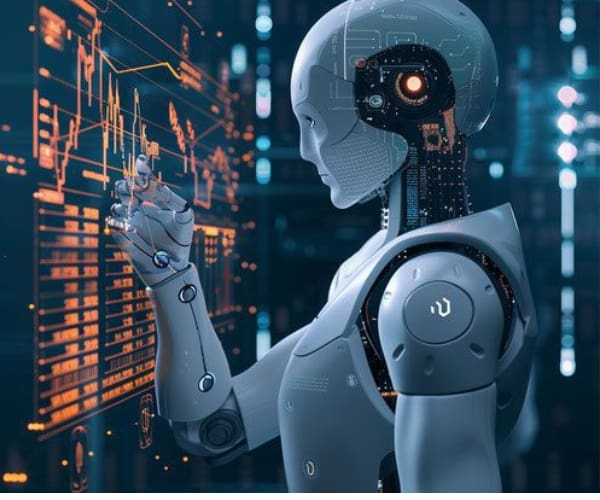
Exploring the Depths of Artificial Intelligence
Introduction
In the sizable ocean of technological development, one tide rises notably others, propelling us into uncharted territories of innovation and opportunity: Artificial Intelligence (AI). From its humble beginnings as a concept in technology fiction to its modern-day position as a using pressure at the back of some of the most groundbreaking improvements in modern society,
AI has captured the creativity of researchers, builders, and dreamers alike. In this blog submission, we embark on a journey to explore the depths of Artificial Intelligence, delving into its origins, evolution, and the profound impact it keeps to have on our global.
Origins of AI: From Fiction to Reality
The roots of AI may be traced lower back to the early 20th century, wherein pioneering thinkers which includes Alan Turing laid the theoretical groundwork for what might subsequently grow to be referred to as Artificial Intelligence.
However, it wasn’t till the latter half of the century that tremendous strides have been made in AI research, with the improvement of computer applications capable of simulating human notion procedures.
From the long-lasting chess-gambling computer Deep Blue to the introduction of professional structures in diverse industries, AI started to transition from the realm of technology fiction to tangible reality.
Evolution of AI: From Narrow to General Intelligence

Data modeling has moved from approximate, conceptual, and modeling efforts to practical efforts as development and customization capabilities have expanded.
Machine learning, neural networks, and deep learning algorithms that have contributed to the development of artificial intelligence perform extensive statistical analysis for pattern recognition, decision-
making, and potential accuracy. Examples of developing AI system capabilities include the rise of virtual assistants such as Siri and Alexa, self-driving cars, and natural language processing.
Impacts of AI: Shaping the Future of Humanity
AI’s effects on society are profound: they permeate every nook and cranny of our existence. Take healthcare, for instance —
AI-driven diagnostics and treatment suggestions turn the industry upside down by enabling more specific diagnoses leading to personalized treatment.
Consider finance: AI-powered algorithms play a pivotal role in decision-making processes for investments besides optimizing trade strategies and catching those involved in fraudulent activities.
Even fields considered as creative as art or music see artificial intelligence take the reins in producing fresh, inspiring pieces— thereby erasing any boundary between human and machine creativity.
Challenges and Opportunities Ahead
Artificial intelligence has a lot of potential. However, it also brings up various challenges and ethical considerations. As AI continues growing, these issues must be addressed; privacy concerns, algorithmic biasing and job displacement are among just a few examples.
Nevertheless, these problems can always be solved if we follow the right procedures during development while being responsible and transparent about them too — thus setting us on track for an era where machines work alongside humans as aids to good living.
Conclusion: Charting a Course for the Future
Looking back on our study about Artificial Intelligence (AI), one thing is evident: we are standing on the edge of an epoch-making period in human existence.
The scope and expanse of this field cannot be fathomed as it keeps growing beyond limits which offer indefinite opportunities for advancements, findings and progress.
We should therefore embrace what AI can do but at the same time watch out for its associated risks so that we may create an environment where both man(kind)
and machine live together harmoniously thereby unleashing the full power of AI throughout many tomorrows.








Can you be more specific about the content of your article? After reading it, I still have some doubts. Hope you can help me.
Your point of view caught my eye and was very interesting. Thanks. I have a question for you.